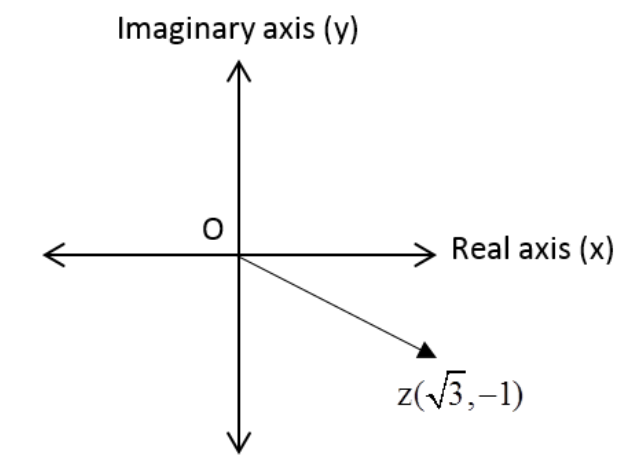Question
Question: Find the modulus and amplitude of the given complex number : \(\sqrt 3 - i\)...
Find the modulus and amplitude of the given complex number : 3−i
Explanation
Solution
For any complex number z=x+iy, Modulus is ∣z∣=x2+y2 and amplitude θ=2nπ+arg(z)
Complete step by step answer:

⇒ z=3−i
From the diagram it can be seen that the point related to complex number z is in the fourth quadrant (3,−1).
Comparing it with the standard equation, we get x = 3 and y = -1.
Modulus ∣z∣ is distance of point from origin.
⇒ ∣z∣=(3)2+(−1)2
⇒ =3+1=4=2
⇒ arg(z)=−tan−1xy [As point is in IV quadrant]
⇒ −tan−13−1
⇒ 6−π
Amplitude =2nπ−6π
Note: General mistake done in calculating argument in fourth quadrant.
Sometimes we mistakenly take (2π−α) in place of −α
